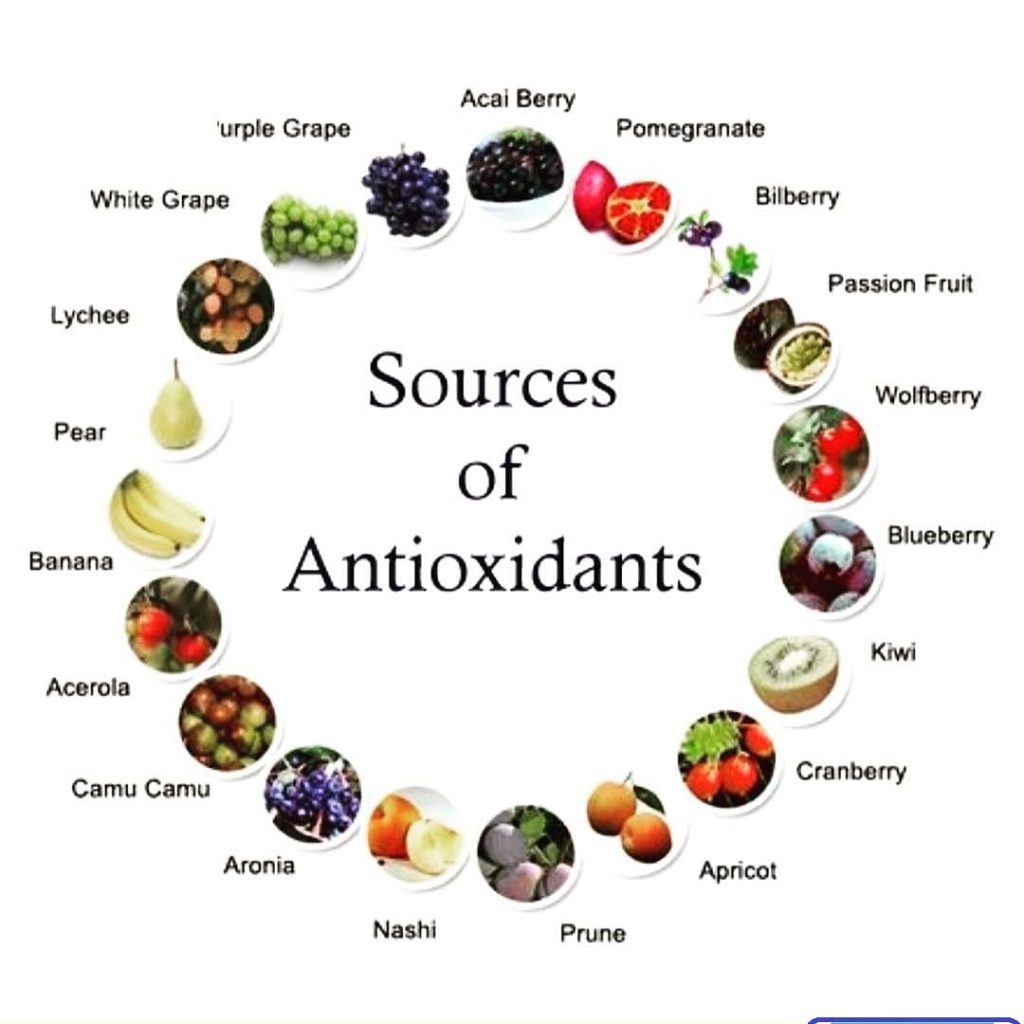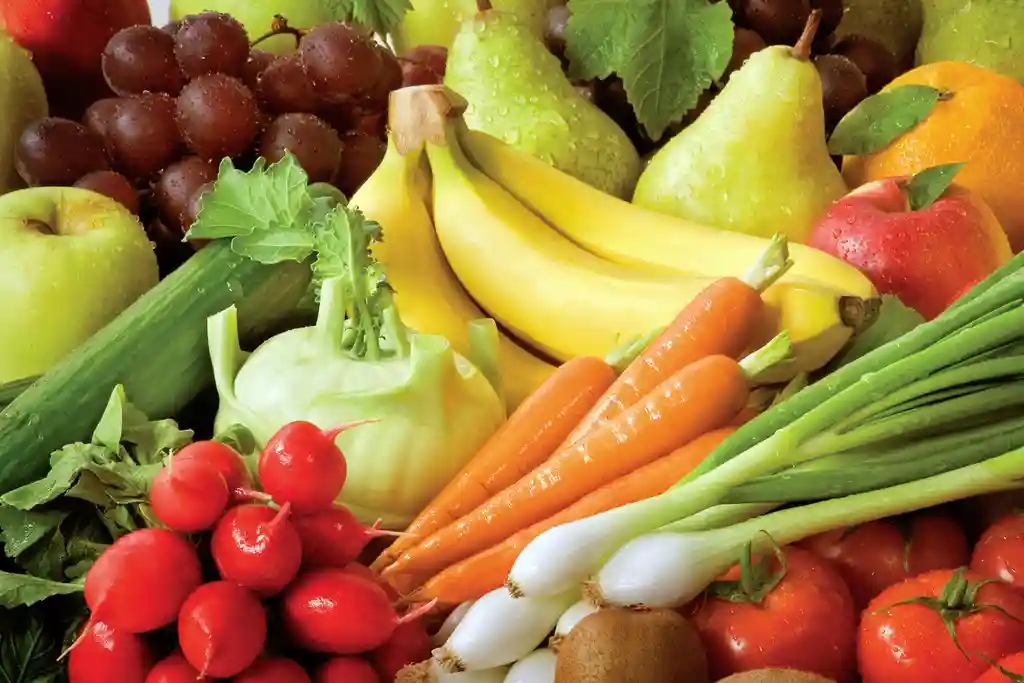Protective Role of Antioxidants: Safeguarding the Body from Free Radical Damage

Antioxidants, a group encompassing vitamins, minerals, and enzymes, play a crucial role in safeguarding the body against the formation of free radicals. These unstable atoms or groups of atoms can induce cell damage, compromise the immune system, and contribute to conditions like heart disease, cancer, and the aging process.
Free radicals are generated through exposure to radiation, toxic chemicals (e.g., from cigarette smoke or sun rays), and metabolic processes like breaking down stored fat for energy.
In the body, free radicals are typically counteracted by natural substances known as free radical scavengers. Key enzymes, such as superoxide dismutase (SOD), methionine reductase, catalase, and glutathione peroxidase, play a vital role in neutralizing these harmful entities. Additionally, certain nutrients act as antioxidants, including vitamin A, beta-carotene, vitamins C and E, as well as the mineral selenium. Melatonin, a hormone, also serves as a potent free radical neutralizer. Some herbs are recognized for their antioxidant properties.
While foods like sprouted grains, fresh fruits, and vegetables provide antioxidants, it can be challenging to obtain sufficient amounts from these sources alone, especially in our polluted environment. To mitigate free radical damage, supplementation with key nutrients is recommended.
Magnesium and sleep

We have about 30g of magnesium in our body – most of this is in bones, followed by muscle and soft tissue with only 1% found in our fluids as an electrolyte where it helps to control fluid balance.Diet and nutrition survey data shows most women in their 40s and 50s eat enough. This is at a population level though, so it’s important to consider needs and intakes on an individual level.
What do we need magnesium for? Its roles within the body include:
Hundreds of metabolic pathways, including releasing energy from our food.
Muscle contraction and blood clotting.
Nerve transmission.
Formation of strong bones and teeth
Immune function
Beating of heart muscle
Supporting psychological function
Although there are no official legal health claims that can be made around magnesium and sleep, it is frequently touted as a sleep aid because of its role in muscle relaxation. So, let’s look at this in more detail.
What does the research tell us about magnesium, diet and sleep?
Magnesium plays a role in activating the parasympathetic nervous system, which is the one associated with ‘resting and digesting’. This Includes supporting the regulation of melatonin which guides sleep/ wake cycles in body.
A recent systematic review looking at all the evidence in this area compiled results from 9 studies and over 7000 people.
Observational studies show a positive link between higher magnesium intakes and blood and urine levels of magnesium being associated with better sleep quality.
These sorts of studies can’t prove a causal link though, so let’s look to the gold standard randomised controlled trials for those answers…
One trial showed 500mg Magnesium supplementation increased sleep time and efficiency when compared to placebo. Other trials were a bit inconsistent and couldn’t show statistical significance.
Back in the real world, statistical significance might not mean much though, as within all studies there will be people right across the spectrum, some of whom find benefit and some who won’t.
There’s enough of a sniff here I think, to consider magnesium supplementation alongside a broader nutritional and holistic approach. For some, they could prove to be a helpful piece of the sleep puzzle.
My ethos is always to look at food first. There are many reasons for this, not least because food always brings with it non-nutritive compounds called phytochemicals which protect our bodies at a cellular level, and as it stands at the moment, we can’t bottle those or put them in a pill effectively.
Why Eating 30 Plants a Week is Good for Your Gut

There’s mounting evidence that the health of your gut matters – and that what you eat every day has a big impact. Your gut “microbiome” consists of trillions of microbes (like bacteria) living inside your GI tract, mostly in your intestines. It influences not only your day-to-day digestion but also your overall health.
According to research from the American Gut Project, eating a wide array of plant foods can help nurture a greater number of different kinds of bacteria in the microbiome. A more diverse microbiome has been linked in studies to a lower risk of conditions like diabetes, inflammatory bowel disease, and obesity.
In their study of more than 1,500 stool staples from healthy adults, they found that people eating at least 30 different plant foods a week had a greater gut diversity than those eating 10 or fewer. The number of unique plant foods people ate had an even bigger impact on microbiome diversity than whether the person identified as a “vegan” or “omnivore.”
Eating an assortment of plants likely has this effect because different plant foods contain different kinds of fiber and nutrients, which help a variety of healthy bacteria flourish in the gut.
If eating 30 plant foods a week sounds downright impossible, you might be surprised. A lot of foods are plants! Here are some ways to work in more each week:
Fruits:
Slice a banana onto your cereal and add frozen blueberries to oatmeal.
Make a smoothie for a mid-morning snack.
Place a bowl of fruit like pears and apples on the counter where you see it.
Serve a plate of sliced fruit after dinner.
Vegetables:
Buy a bag of pre-washed spinach each week and toss it into things like smoothies, soups, pastas, and salads.
Assemble a veggie tray each Friday with the leftover odds and ends from your produce drawer and add a dip.
Prep roasted veggies on Sundays to reheat during the week.
Swap half of the ground beef for chopped white button mushrooms in spaghetti sauce.
Beans and lentils:
Add canned beans to soup and chili.
Snack on hummus and cucumbers (or use hummus as a spread instead of mayo).
Top salads with chickpeas.
Munch on lightly salted edamame for a protein-rich snack.
Nuts and seeds:
Toss a quarter-cup of walnuts into a bowl of boxed cereal.
Snack on a handful of pistachios or almonds in the afternoon.
Sprinkle your salad with pumpkin or sesame seeds instead of croutons.
Top stir-fries and rice bowls with chopped peanuts.
Women’s Health – Issues, Factors & Foods

Whether she is a homemaker or the ‘boss girl’ at work, multitasking comes naturally to women. Juggling many roles, sometimes time zones and schedules too, their days are mostly packed with a lot of action. The never-ending “to-do” list always keeps women in‘ rushing mode’ in order to get one or the other thing completed. As the work piles up, health takes a back seat. And this stressful and fast-paced lifestyle can spell bad news for women’s health.
A HEALTHY BALANCED DIET FOR WOMEN
A balanced diet should include energy-rich foods which are predominantly carbohydrates and fats; body building foods that are proteins and protective foods such as vitamins and minerals. A holistic approach to women’s health is firmly rooted in balanced diet.
An average 5’2 woman needs 1600-2400 calories a day, with a low count for those who are less active and a higher bracket for those who lead an active lifestyle. Fixing your diet to keep your energy levels high is one of the best health tips for working women. Women’s health care starts with a balanced diet, and here’s is what it must include:
Healthy Carbohydrates
For an average woman, 45 to 65% of their calories should come from carbohydrates, which means women consuming 1600calories per day need approx. 180 to 260 gms and women targeting 2400 calories require 270 to 390 gms of carbohydrates a day from whole wheat, bajra (pearl millet), brown rice, ragi, jowar, and the like.
Power Proteins
Protein needs vary; however, as a generic rule, the CDC recommends a 10-35 percent of daily calories come from protein.
Non-vegetarian sources include egg, fish, meat, poultry and vegetarian sources are lentils and whole grams.
Good Fats
To maintain a healthy weight and prevent unhealthy cholesterol and heart disease, nutritionists recommend a low-fat diet style, i.e. 25-35 percent of total calories for 2000 calorie intake, roughly calculated to 56 to 77 grams of fat.
Rich Fibre
Fibres are essential to control blood glucose, proper digestion and lowering the risk of heart disease. Women between the age group of 18-50 should aim for 25 grams a day, and 21 grams a day for 51years and older—Furthermore, for every 1000 calories, it’s ideal to have 14grams of fibre in your diet.
Fruits, vegetables, oats, barley, and legumes provide excellent sources of fibre.
12 Natural Anti-Aging Foods for Glowing Skin

Though they say don’t judge a book by its cover, our skin is what forms our exterior, and as much as we don’t like to accept it, all of us want to look youthful and push the inevitable aging to the sidelines. Our skin forming our exterior takes in a lot of abrasions from the environment around it. Due to this, dermatologists recommend using anti-aging products from as early as the 20s, the logic being if the base is right from the beginning, it causes less damage later on.
1. Berries: The bioactive compounds in berries like strawberries, blueberries, cherries, raspberries, and blackberries are rich in antioxidants as anthocyanins, resveratrol, and ellagic acid, which are responsible for skin-related benefits.
2. Papaya: The papaya’s enzyme papain makes it an all-time favourite in skincare routine for anti-aging foods for the skin. A study conducted in 2015 states that wrinkling and skin damage occur due to excessive free radical activity, which lycopene in papaya helps fight.
3. Avocado: Avocado is a superfood that has gained popularity in India in recent years. It is rich in omega-6 fatty acids and vitamin B, K, E, A, and B that helps to shed the dead skin cells and increase collagen.
4.Citrus Fruits: Being rich in vitamin C, citrus fruits from the typical lemon, lime, and oranges to grapefruit and yuzu are the best anti-aging foods for beautiful skin. Vitamin C in citrus helps to boost collagen and repair and rejuvenate the skin while maintaining its elasticity.
